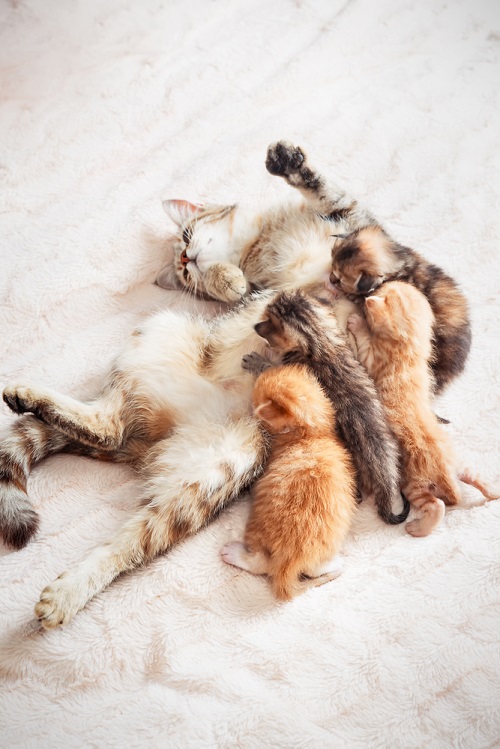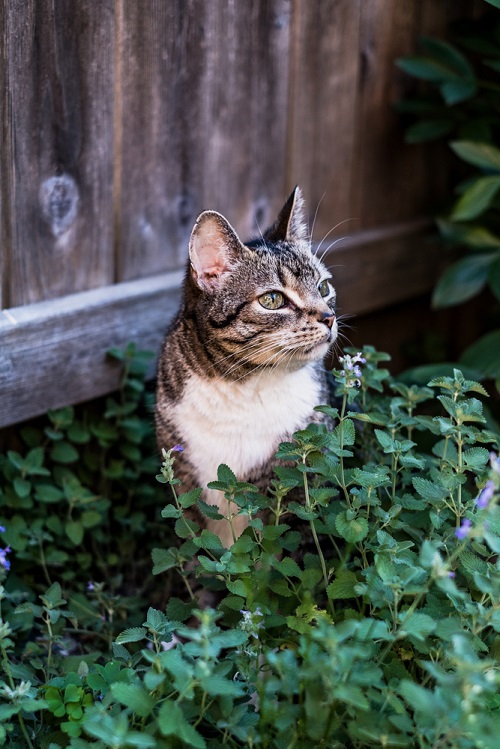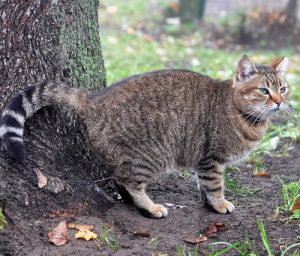Can Nursing Cats Have Catnip? Find out if your nursing kitty can enjoy a pinch or two in this short yet informative article!
Catnip, the aromatic herb loved by felines worldwide, has long been associated with playful antics and euphoric behavior in cats. From rolling in it to rubbing their faces against it, watching a cat’s reaction to catnip can be quite entertaining. However, as a responsible cat owner, you may wonder, Can Nursing Cats Have Catnip? Learn the answer below.
Can Cats Eat Mint? Find out here
What is Catnip?

Catnip, scientifically known as Nepeta cataria, is a member of the mint family. Native to Europe and Asia, this perennial herb boasts aromatic leaves and stems. When cats come into contact with catnip, either through inhalation or physical interaction, it triggers a series of intriguing behaviors. Cats may roll, rub, leap, purr, or engage in playful antics under the influence of this herb. While not all kitties are responsive to catnip, for those that are, it provides an irresistible source of entertainment and stimulation.
What are the Effects of Catnip on Cats?
The effects of catnip on cats can vary, but here are some common observations:
- Euphoria and Playfulness: Catnip can induce a state of euphoria in cats, leading to increased playfulness and activity levels.
- Rolling and Rubbing: Felines often roll on or rub against catnip-infused objects, including toys or fresh catnip leaves. This behavior is believed to respond to the scent and stimulate pleasure centers in the brain.
- Hyperactivity: Some kitties become hyperactive or exhibit bursts of energy after exposure to catnip. They run around, pounce, or engage in erratic behavior.
- Relaxation: Conversely, catnip can also have a calming effect on cats. It helps alleviate stress or anxiety in certain individuals.
- Increased Sensory Stimulation: Catnip can enhance cats’ sensory experiences, making them more engaged with their surroundings. They become more interested in exploring or investigating their environment.
- Temporary Loss of Interest: After several minutes of exposure, cats can become temporarily immune to the effects of catnip. This “catnip response reset” can last anywhere from 30 minutes to a couple of hours.
What is a Nursing Cat?

Nursing cats refer to female cats that are in the process of caring for and feeding their newborn kittens. During the nursing stage, which typically lasts for a few weeks to a couple of months, a mother cat provides crucial nourishment and maternal care to her offspring. This includes producing milk to sustain the kittens’ growth and development, grooming and cleaning them, as well as teaching them essential behaviors. Nursing cats display a strong nurturing instinct and dedicate themselves to ensuring the well-being and survival of their vulnerable litter.
Can Nursing Cats Have Catnip?
Experts generally recommend avoiding giving catnip to a nursing cat. Catnip can induce playful behaviors and temporary changes in demeanor, which could potentially distract the mother cat from her maternal duties. It’s best to prioritize the nutritional needs and well-being of the nursing cat and her kittens during this critical period of growth and development.
Can Cats Overdose on Catnip?

While catnip is generally safe for cats, it’s unlikely for cats to overdose on it. Felines have a built-in mechanism that helps regulate their response to catnip, preventing them from consuming excessive amounts. When cats experience excessive exposure to catnip, they exhibit temporary signs of overstimulation, such as hyperactivity or restlessness. However, these effects typically last for a short time. Ensure kitties get catnip in moderation, as excessive exposure could potentially lead to discomfort or gastrointestinal upset.
Does Catnip Affect Lactation?
Catnip does not have a significant impact on lactation in nursing cats. While it can stimulate playful behaviors, catnip is not known to interfere with a mother cat’s ability to produce milk. However, it’s always recommended to provide a balanced and nutritious diet for nursing cats to ensure optimal milk production and kitten development.
Can Nursing Cats Have Catnip? Quick Takeaways!
- Catnip is a perennial herb that is appealing to most domestic cats due to its aromatic leaves and stems containing a compound called nepetalactone.
- Effects of catnip on cats include euphoria, playfulness, rolling, rubbing, hyperactivity, relaxation, increased sensory stimulation, and a temporary loss of interest.
- It is generally recommended to avoid giving catnip to nursing cats to maintain their focus on caring for their kittens.
- Cats are unlikely to overdose on catnip, as they have a built-in mechanism to regulate their response to it.
- Catnip does not significantly affect lactation in nursing cats; it primarily influences their behavioral responses rather than interfering with milk production.



